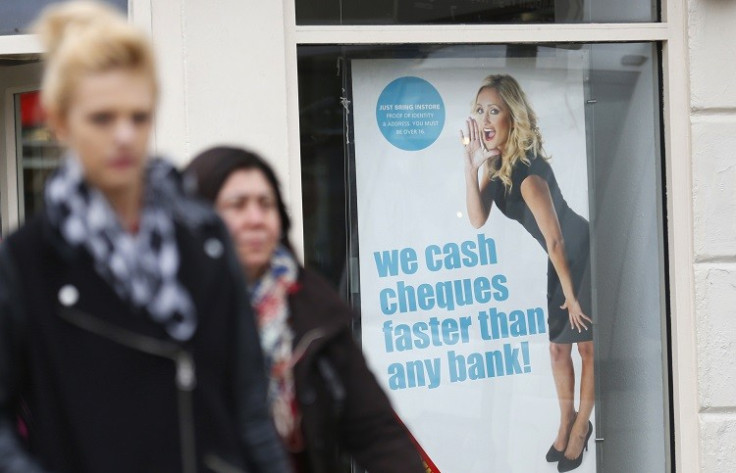Britain to Impose 'Logical' Caps for Payday Loans Interest Rates

Britain is set to impose a new law on payday lending companies which will result in a maximum amount a group can charge a customer to take out a loan.
UK Chancellor George Osborne revealed that capping payday loan costs is "the logical step" and that the level of the cap will be decided by the Financial Conduct Authority (FCA).
"We've taken steps to control things like the roll over of those loans and I think the next logical step is to cap the overall cost of credit," added Osborne.
"It's working in other countries, it helps hard-working people, and in fixing the banks we need to make sure we fix all parts of the banking and financial system and payday lending is part of it."
The FCA's final determination will be included in the Banking Reform Bill.
The UK payday lending sector is worth £2bn ($3bn, €2.3bn) in the UK. Its value has doubled since 2008/2009.
Current figures show that this corresponds to between 7.4 and 8.2 million new loans.
Despite these loans being described as one-off short term loans, costing an average £25 per £100 for 30 days, up to half of payday lenders' revenue comes from loans that are rolled over or refinanced.
Interest rates on the short term loans can reach highly inflated levels.
One of the UK's largest payday loan companies, Wonga, has recently bumped up its representative APR of 5,853% on its website.
'Preying on the Vulnerable'
Over the last few years, politicians have looked to rein in the growing payday loan sector, which is described as "preying on the vulnerable".
In May this year, Public Accounts Committee Chairwoman Margaret Hodge blamed payday loan companies for creating spiralling personal debts, and using "predatory techniques".
Meanwhile, on the 5 November, a number of payday loan bosses and independent experts faced a panel of politicians to give evidence about the industry.
"The problem is that there is a desert of regulation [in the payday loan industry] so easy to get a licence and then the slippage to loan sharks is not far away," said Consumer finance champion Martin Lewis.
"The big advertising companies, such as Wonga and QuickQuid] have their own raft of problems but we're talking about the one man bands that can set up shop."
Lewis, who has been working closely with the Financial Conduct Authority (FCA) to help stamp out retail financial product mis-selling, says that the regulator has started the process of better market practice but more needs to be done.
"The FCA has given us a glass of water, in terms of what it will do about the payday loan industry," said Lewis.
"However, it is a glass of water, not an oasis."
However, bosses at Wonga defended their company and the industry overall is better than banks and credit cards.
"Our business model is aimed at lending to customers that will pay us back," said Wonga's head of regulatory and public affairs, Henry Raine.
"The vast majority of customers pay us back early or on time and that compares favourably to credit cards and banks."
© Copyright IBTimes 2025. All rights reserved.






















